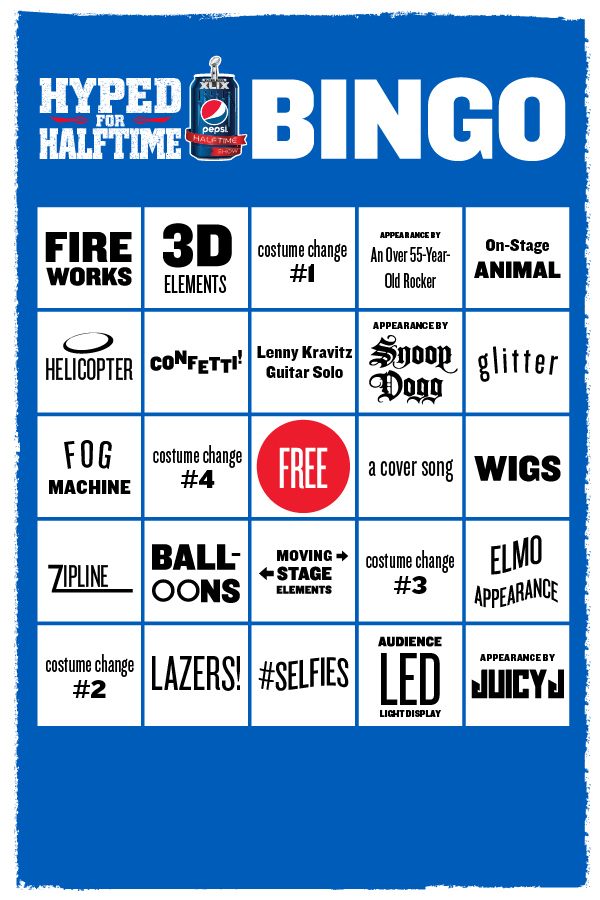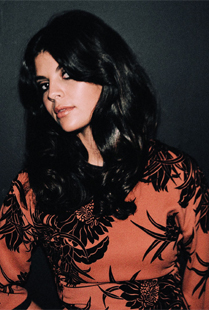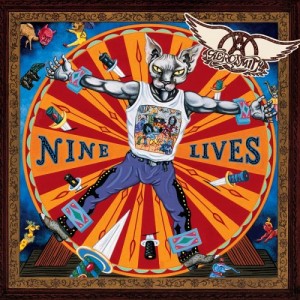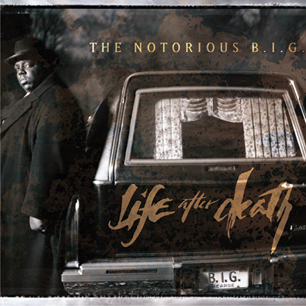If you’re having a great day, or a bad couple of hours, be prepared to be ambushed by cute as this kitten enters a box ducklings that just might make your head explode with adorbs.
The Best Family Reunion You’ll See All Week, No Lion
This video from Kruger National Park in South Africa shows the story of a lioness that had somehow gotten separated from her pride for a few days. She hid in the brush, called out for them and patiently waiting for them to come back – if they ever did. Once they did re-appear, just watch the joy and happiness that comes only with family reunions.
Mister Rogers’ Neighborhood Set Is Now Open For Display
The Heinz History Center in Mister Rogers’s own city of Pittsburgh has several items from his set on public display. You can visit the fourth floor Special Collections Gallery to see the largest collection of original items from the “Mister Rogers’ Neighborhood” television set on public view.
The installation include the entryway and living room set that Mister Rogers walked through to begin each show, King Friday XIII’s Castle, Great Oak Tree, the residence of Henrietta Pussycat and X The Owl, Picture Picture, the display that helped Mister Rogers teach children using interactive media, McFeely’s “Speedy Delivery” tricycle; and a variety of additional items from the “Neighborhood of Make-Believe,” including King Friday XIII’s telephone, Henrietta Pussycat’s outfit, Chef Brockett’s hat, Harriett Elizabeth Cow’s desk, and the bench that Mister Rogers sat on during each show. Also on view is a life-like figure of Mister Rogers, wearing his iconic sweater, necktie, khakis, and sneakers.
Behind the scenes of a Penn & Teller show
Seeing is believing, as the saying goes, but don’t try telling that to illusionists Penn & Teller. Since the late 1970s, they have been performing their unique act combining comedy and magic, astonishing and delighting audiences around the world. CBS’ Lee Cowan has a backstage pass.
Nikki Yanofsky: “Meeting Quincy Jones Was Fate”
From her auspicious start as the youngest headliner in the history of the Montreal International Jazz Festival at 12, Nikki Yanofsky has covered plenty of territory over the last eight years. She has topped both jazz and pop charts, performed with orchestras and big bands, and sold out festivals and major theatres around the world; in 2010, she sang to 3.2 billion people – half the world’s population – at the Vancouver Olympic and Paralympic Games.
In January 2015, Nikki will head out on her first cross-Canada tour, kicking off in Quebec City on January 16 and wrapping in Vancouver on February 4.
Nikki has worked with luminaries such as Herbie Hancock, Phil Ramone, Will.i.am, Wyclef Jean, and Stevie Wonder and now, under the guidance of her greatest fan and mentor, Quincy Jones, Nikki is ready to introduce her own captivating new sound. Get ready to be amazed by her inimitable voice as she arrives at the unique crossroad where jazz meets pop, delivering sizzling songs on her latest album, Little Secret, that blend retro charm with a contemporary sound helmed by Rob Kleiner, the man behind exciting music by Cee-lo Green and Flo-Rida. Many of the tracks are also Produced and co-Produced by Montreal’s own Dan Cinelli, who also owns the venerable Planete Studios – arguably Montreal’s best recording studio. Quincy Jones helped guide the recording and serves as the Executive Producer on the album.
Forget genres for a second – she can sing it all – jazz, pop, Motown, soul. How about if we just call her one of the greatest singers this country ever produced?
Eric: Here’s one thing I learned about growing old, but not necessarily up. They say that being in your 20s, you’re the most stressed out. You’re trying to find yourself. But you had to do that really early on, and look at all the fun things you have to look forward to in your 20s now! But, how much of a struggle was it, being a teenageer and having to deal with so much success at such an early age?
Nikki: I think of how much blessing that would have happen so early on. I wouldn’t say like being oblivious to it being a teenager because I am definitely aware of everything that was going on but you don’t realize the stuff that should come with it when you’re at that age. You know what I mean, it’s just kind of you go with the flow of things and you’re not really thinking too far down the line, it’s just sort of like living in the moment and I feel like that mentality is sort of stuck with me and continues to come with me into my 20s and now that I’m turning 21 really soon, which is kind of crazy. I think I really didn’t have any stress or struggles, I was just really happy to be able to be doing what I love so early on.
Eric: It’s a rare case in taking a look at your career and looking at the music. The music was always first and foremost, and you never lived your life keeping your name in the gossip papers. You seem to run a low-fi life.
Nikki: Yeah I know , definitely, I tried to keep things, it’s not that I tried to keep things separate, it’s not that I hide anything in my personal life, it’s just like that my life is pretty much all the time is music, so [laughs] it’s like what you see is what you get sort of thing.
Eric: Tell me how you get to record an album with Quincy Jones. It’s not that you’re very far away from all of those connections and people like Quincy based on your success, but who approaches who first?
NY: These sort of things I feel like they happen very organically and very coincidentally, it’s not like anyone just set us up, it’s just sort of happened. It actually happened originally because I met him through a mutual friend of ours who said there’s this young girl, at the time I think I was 14, and he said there’s this young girl who singing jazz and not only jazz but your arrangement because I was really, really obsessed and I still am with Quincy Jones and everything he’s done and his legacy. Everyone he has worked with. His album with Ella is probably my favorite, and all the stuff he did with Ray Charles and Diana Washington and Frank Sinatra, of course. I was just completely obsessed with him and so this friend of ours said you should listen to her because she singing your arrangements, and I think that piqued his interest just because of having a 14 year old sings jazz wasn’t really the norm at that time.
Eric: Exactly, and think about if you’re Quincy Jones – how many people per week are coming up to him and saying they know someone who sings.
Nikki: I feel like it was almost fate that we met – for whatever reason he decided to take my meeting. I met him in his house actually, I got to go to his house and he walked in his living room with the bathrobe on and a smoothie in his hand and it was so funny because I was sitting there and I was so nervous to meet him and then he walked in like that, he just seems so normal and he said, “So what are you going to sing for me?” And all my fears and all my nervous is sort of what vanished. I sang Lullaby Birdland and Somewhere Over The Rainbow for him and we ended up talking for the rest of the day. I was asking him so many questions, he told me so many awesome stories and we just hang out. And then about a year went by, we didn’t lose touch, we just didn’t have anything we could both work on at the same time. But then, I was on tour in Europe, I was in Rotterdam and I’m sitting in the hotel lobby, I ordered room service through the lobby, it was too late that they don’t serve room service in the room at that point, it was like 12 o’clock, and it was Quincy!
Eric: Was he wearing a bathrobe?
Nikki: he was fully clothed.
Eric: He should have worn a bathrobe. How great would that have been.
NY: It was a nice bathrobe too! He had his PJs with his slippers, he just looked like a boss.
Eric: When you sing a song and Quincy Jones is your audience, that one second of silence when you finish – do you care at that point what he thinks? You know you’re good and you know how things work in the industry where you’re just grateful for the opportunity to have that few minutes with Quincy.
Nikki: I think you really have to have faith in yourself first and foremost with everything. You can’t really let it get it to you if someone doesn’t want what you’re doing if you’re liking it, because you can’t live to impress other people and you can’t live to satisfy other people, you really have to put yourself first in that way because otherwise if something you don’t like for the sake of someone else and he doesn’t do anything, then you’ll just gonna miserable with that, but the thing is with Quincy, it’s like it’s one thing to believe in yourself but then to have somebody you trust so much come behind you and say I believe in this too, it’s just like the biggest vote of confidence, it’s just like amazing to have someone you trust and respect so much come in your life and just say yeah I get it I know what you’re trying to do and I support that.
Eric: Does Quincey have something in the studio that he did with you that made you feel comfortable that you? Any methods he uses for you like how he gets the best out of Michael Jackson, Ella and Frank?
Nikki: He just says, “just forget it!” When he says that, it’s like you know what? He’s just telling you to trust your own gut and go with things. If you feel it, then other people will too. That’s what he always says. You have to just do what you think is good, the moment you think it’s good it’s because it is. Someone else will feel that and relate to that too.
Eric: You have to believe in yourself and you have to do what you do, but you’re in a style of music that has so many different people molding and marketing it. It is ever nerve-wracking for you when you’ve done your job putting out the best album you can, and now to give up some control to the marketing people?
Nikki: I think once the music is done it’s out of your control no matter what you do. Even if you try and hold onto it as much as possible. If it’s finished, and you put it out there, you can’t decide where it’s going to go or who’s going to listen to it. At that point, whoever wants to listen to it, I respect the fact that they care enough to. Quincy says “Good music is good music.” If you trust that, it doesn’t matter. He always tells me, “I hope that you’re one of those that can be categorized, music.” That’s what Duke Ellington told him one time and he told that to me too, that was one of the nicest things he said to me. That’s really what I strive for, a decategorization of music. Just letting it be what it is, letting that breathe and letting people feel that.
Eric: It’s always been fun watching you succeed in music. You’re doing a style of music that very few teenagers could even wrap their voice around. Little Secret is almost an updated Nikki Yanofsky for 2014 – you still had one foot in Jazz and one foot now in Pop. But you always were pop, it just wasn’t focused on, the jazz genre was what was publicized.
Nikki: I feel like that album was made over the course of almost 4 years. From 16-20 and I feel like that’s a really big time of self-discovery and development. I feel like you sort of find out what you want to do and what you want to say. My first album I ever released, which was produced by Phil Ramone, that album had jazz sound, half jazz standards and half originals. But the originals were so far from jazz and I just though – I don’t want to sing standards for the rest of my life. I’m always going to do some live. In terms of recording stuff, I have something new to say. I don’t just want to keep singing other people’s songs that have been released for years and years. In a way, I feel like if you want to keep jazz alive, you have to make it your own in that way. In my opinion, if I don’t change the sound of my original stuff, the way I was able to do the original stuff being so far from jazz is because I had the jazz standards to balance it out. But if I was going to stop recording standards on my records, then I would have to have my originals be a little more jazzy too. This album, it definitely sounds the most contemporary thing I’ve ever really done. But, in terms of the actual songs they have more of jazzy edge than the original songs on my last record.
Eric: That’s a very cool thing that you have the ability to do. In rock, people want to hear the original and the audience rarely like their artists to stray from the way it sounds on record. But you always had the power to change the arrangements into whatever you want to do.
Nikki: Thank you! I think the main thing there is, the common denominator throughout my music has always been my voice. I never really – I’ve always been told I was a jazz singer but I never really dubbed myself as a jazz singer. I mean, I love jazz and it’s definitely one of my favorite genres to sing, but I just like retro music in general. My music has always been retro, so I feel like when you live in that realm it’s easier to experiment a little more. You have more flexibility, because you’re never really marketed as straight ahead in the box jazz girl. I was singing Motown before I was singing Ella. I’ve always been in both of those worlds, kind of a soul / jazz thing.
The Music Industry’s Most-Loved Albums Of All Time, Part 35
This is part 35 of an ongoing series where the kind folk of the music business reveal their favourite album of all time.
Ask people in the music industry the seemingly simple and straightforward question, “What is your favourite album of all time?” and you’ll find that it’s not always easy. After all, my industry peers listen to hundreds of albums a month – thousands of songs during that time. Because the question isn’t the best album of all time – the one that’s made them the most money in sales – but the one release they personally can’t live without, that one title they have two copies of in several formats, in case one breaks. It’s also about that album that for them has the best back stories and the one that has the most meaning in their lives.
Claudie Saulnier, Editor in chief, HollywoodPQ.com
Nine Lives, Aerosmith
My personal life-changing album was (and still is) Nine Lives from Aerosmith. I was 11 years old when they released Hole in my Soul and its fantastic video, and it literally pushed me through my little girl / boys band phase. This record introduced me to the colorful world of rock. Aerosmith taught me what loving music really means.
Karen Graham, Music Writer, Turn It Up To Twelve
The Fine Art of Surfacing, The Boomtown Rats
I was 6 or 7 when it was released. I Don’t Like Mondays was ALWAYS on the radio and the sound was very provocative. I still play the entire record at least once a week.
Nate Ra, Music Writer, The Tennessean
Strawberry Jam, Animal Collective
I loved the band before it came out, but I’d never heard anything quite like it, and I still find the songs as fun and gripping as when I first heard them.
Lee Dale, I Need Sugar
Rubber Soul, The Beatles
There are certainly some 60s guitar pop here, but so much of this is ahead of its time, and already a significant evolution from 1965’s earlier release, Help! While they’re not yet pushing the boundaries as far as the White album, I find this album to be a much more cohesive whole. Individually, there are remarkable acoustic tracks, like Norwegian Wood and Michelle. There’s the wonderful In My Life. Plus it includes a surprisingly great country track, What Goes On, along with the vicious Run For Your Life. Then there’s Girl. An incomparable track now, made even more remarkable when compared to other great songs from 1965. I also hear a lot of my era’s Sloan and C.A. Smith here, which is a lot of fun for a guy who missed the Beatles and didn’t start digging into music on his own until 1990.
Trent Clark, Hip Hop Wired
Life After Death, The Notorious B.I.G.
The album still reigns supreme for me. Rappers and record labels alike always try to cater to a multitude of audiences in one sitting at with two discs to boot, Biggie managed to do just that on his unintentional swan opus. There was soul reflection (“Sky’s the Limit”), surreal gangsterisms (“Somebody’s Gotta Die”), and pure hitmaking material that still gets played to this day as heard on “Hypnotize” and “Mo Mo, Mo Problems.” In my opinion, it remains the only album that evidences a jack of all trades and master of them all.
Canadian Arts/Media Job Posts For January 27, 2015
Parks Canada in Longview, AB is looking for a Heritage Presenter.
Sun Life in Waterloo, ON has an opening for a Marketing Consultant, Social Media.
The Canadian Children’s Opera Chorus has an opening for an Artistic Director.
Proper Television Inc. is seeking a seeking full-time receptionist based in Toronto.
WebSeeds Inc. is looking for a full-time writer to join our team in the Markham area.
1310NewsOttawa is looking for a part-time News Anchor/reporter to join their team.
SONiC Vancouver has a rare opportunity as a Swing Announcer (mat leave position).
Blank On Blank Presents Elliott Smith on Freaks
“A lot of people are kind of depressed. I’m happy some of the time, and some of the time I’m not.”
– Elliott Smith in 1998, as told to Barney Hoskyns
We came across a really lost special tape for this episode of Blank on Blank: Elliott Smith interviewed in 1998 by Barney Hoskyns. It’s a little eerie hearing him now more than 10 years after his death, but it’s also kind of soothing to hear his signature comfort and discomfort bubbling beneath the surface. It’s kind of like his timeless collection of music. Smith died under mysterious circumstances in 2003 at the age of 34.
In this animated film Elliott Smith talks about feeling like a freak in high school, how he initially didn’t feel confident singing in the style that became his signature voice, what he said when people compared him to Paul Simon, writing about people with addictions, the internal chaos that people face, and how his music isn’t happy or sad. “I couldn’t say what it is”
RIP, Elliott.
























